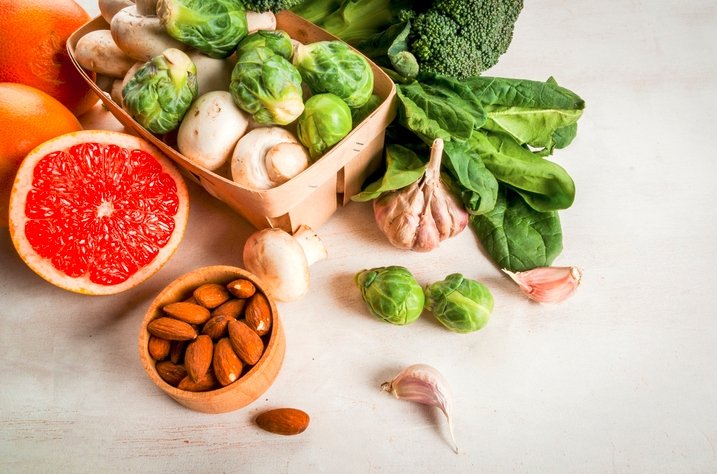We tend to spend more time indoors during the colder winter months and that means less fresh air and more time spent in close quarters with other people. If you are around other sick people, this can be a recipe for getting sick. Cold and flu season often lasts from early October through early May. How do you protect yourself? Well, there are the obvious things like getting a flu shot, washing your hands, and getting plenty of sleep. Nutrition is often overlooked. The nutrients in foods we eat, especially fruits and veggies, play a big role in keeping our immune system working and keeping us healthy. Here are several foods that you should be consuming this winter to help keep your immune system in top shape:
Citrus fruits (grapefruit/oranges/tangerines) are in season during the winter months so take advantage of them. They are a good source of vitamin C, which is powerful at fighting off the common cold. They also have natural immune boosting chemical compounds called flavonoids.
Low-fat yogurt can have an immune-boosting effect because yogurt contains live and active cultures or probiotics, that may help stimulate the immune system and fight off disease. Make sure that the yogurt you buy does indeed contain probiotics by looking on the label for the bacterial strains it contains. Consider Greek yogurt for a good protein boost.
Garlic contains antioxidants that help battle immune system invaders. Try adding garlic to soups and stews or make a stir-fry with garlic and other veggies to get even more benefits.
Spinach contains Folate, which helps the body produce new cells and repair DNA. Spinach also contains vitamin C, fiber, and antioxidants. You can make a spinach salad or add spinach to your favorite winter dishes including soups, casseroles, or pasta.
Sweet potato is rich in the antioxidant beta-carotene, which mops up damaging free radicals. Sweet potatoes can be added to soups or stews. They are fantastic baked or mashed and served as a side dish.
A recommended ¼ cup serving of almonds contains 50% of the recommended daily amount of vitamin E, which helps support the immune system. Almonds also have riboflavin and niacin, which are B vitamins that may help you stay healthy during times of stress. Eat a ¼ cup of almonds as a snack with an orange or apple for added benefit.
Mushrooms help increase the production of cytokines, which are cells that help fight off infection. Mushrooms can be added to soups or stews, topped on pizzas or pasta, or served raw in a salad.
Ginger contains chemicals that attack rhinoviruses (the common cold). Ginger can also be a natural pain reliever. To get the health benefits of ginger try making a ginger tea, sauté the ginger into a stir-fry, or make a ginger carrot soup for added benefit.
Chicken soup provides fluids that can help fight off viruses and can help ease cold symptoms. Making chicken soup with bone broth may provide additional protection. Bone broth contains amino acids arginine, glutamine, and glycine, which are important for a healthy gut and benefit the immune system.
Cruciferous vegetables (kale/broccoli/cabbage) can help support the liver by boosting the liver’s ability to flush out toxins. This can help our body focus more on getting rid of foreign invaders such as viruses. These veggies are all delicious additions to soup or make a great salad.
Adding these veggies, along with decreasing your intake of processed foods, will help keep your immune system healthy. Remember, that foods have many nutrients that act symbiotically to support health. Taking any of the nutrients listed above in isolation may not have the same immune-boosting effect. Another key is to get a variety of fruits and vegetables for the most benefit. Stay healthy!









